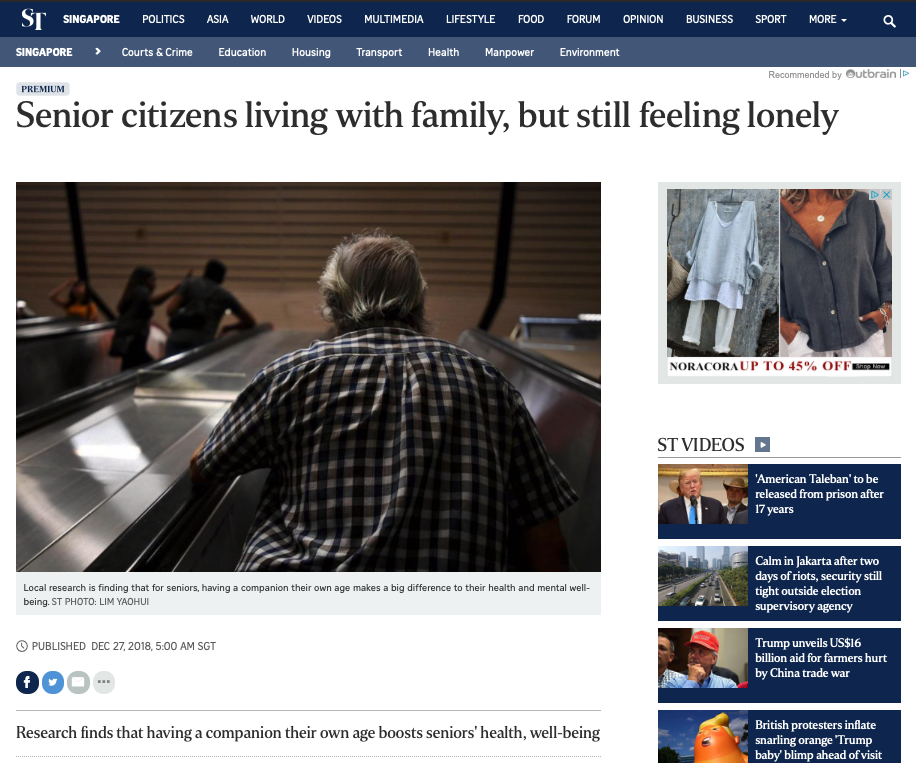5.1 The lonely dichotomy
Loneliness is a real issue for many people today, and it has been shown to have deleterious effects on health (Rico-Uribe et al. 2018). More of us are beginning to realize that social connections are key, especially for older persons. The Straits Times carried an article in 2018, with the headline “Senior citizens living with family, but still feeling lonely”.

Figure 5.1: Screenshot of online article on lonely seniors. Retrieved May 25, 2019.
But what does feeling lonely really mean? There seems to be a dichotomy being drawn here - either you feel lonely, or you don’t feel lonely. There is little room for nuance like “I feel lonely when I ride the bus by myself”. Of course, some level of simplification is needed to compare across groups - and this simplification is what we need to examine.
The news article highlights studies on loneliness (in Singapore) done by two different groups - a team at the National Healthcare Group (NHG), and a team at the Centre for Ageing Research and Education (CARE) in Duke-NUS Medical School23. As we will see, this lonely/not lonely dichotomy is drawn by reseachers as well, but sometimes in completely different ways. Let us take a closer look.
References
Rico-Uribe, Laura Alejandra, Francisco Félix Caballero, Natalia Martín-María, María Cabello, José Luis Ayuso-Mateos, and Marta Miret. 2018. “Association of Loneliness with All-Cause Mortality: A Meta-Analysis.” PLOS ONE 13 (1): e0190033. https://doi.org/10.1371/journal.pone.0190033.
Led by Associate Professor Angelique Chan↩︎